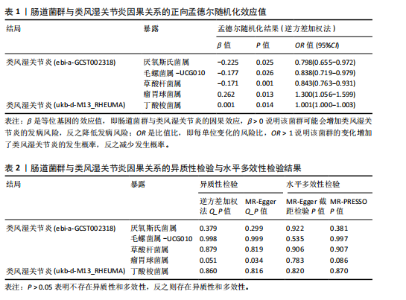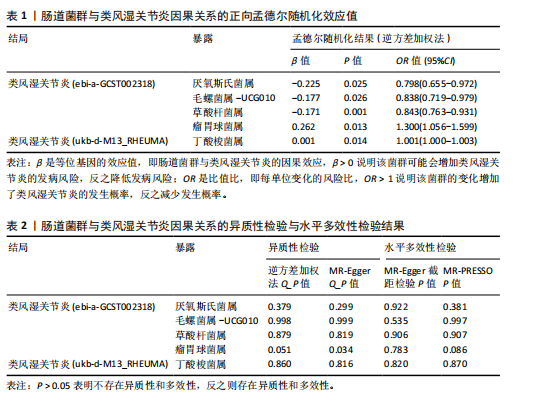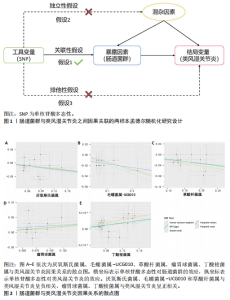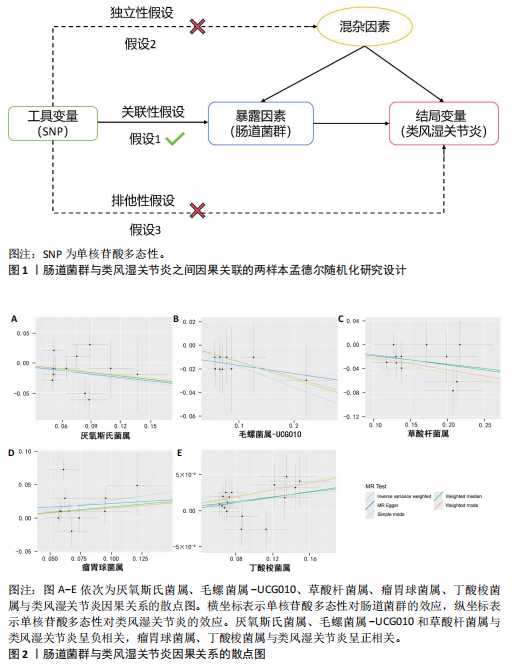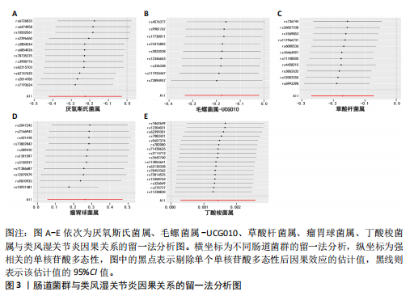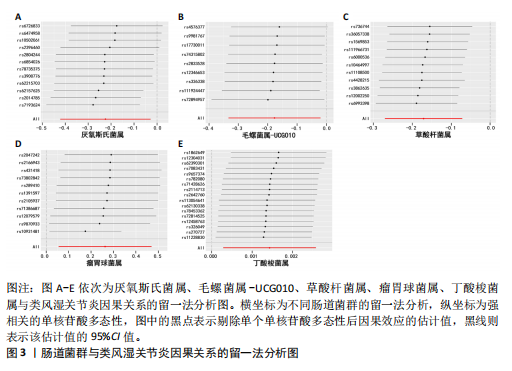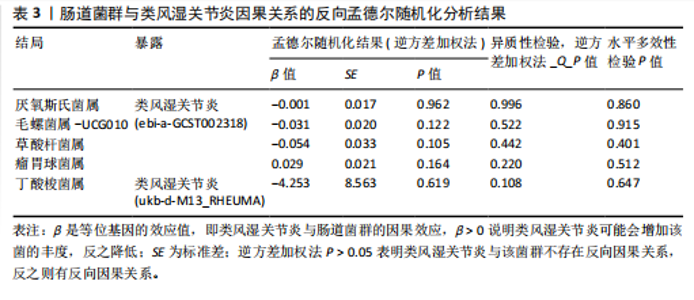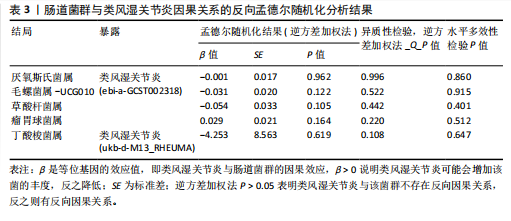[1] DI MATTEO A, BATHON JM, EMERY P. Rheumatoid arthritis. Lancet. 2023; 402(10416):2019-2033.
[2] FINCKH A, GILBERT B, HODKINSON B, et al. Global epidemiology of rheumatoid arthritis. Nat Rev Rheumatol. 2022;18(10):591-602.
[3] CAI Y, ZHANG J, LIANG J, et al. The Burden of Rheumatoid Arthritis: Findings from the 2019 Global Burden of Diseases Study and Forecasts for 2030 by Bayesian Age-Period-Cohort Analysis. J Clin Med. 2023;12(4):1291.
[4] BROWN P, PRATT AG, HYRICH KL. Therapeutic advances in rheumatoid arthritis. BMJ. 2024;384:e070856.
[5] FATEMI B, YAGHOUBI N, SHOBEIRI N, et al. Cost-effectiveness analysis of tofacitinib for the treatment of moderate to severe rheumatoid arthritis: a systematic review and meta-analysis. Expert Rev Pharmacoecon Outcomes Res. 2025;25(1): 29-38.
[6] XU Q, NI JJ, HAN BX, et al. Causal relationship between gut microbiota and autoimmune diseases: a two-sample mendelian randomization study. Front Immunol. 2021;12:746998.
[7] ZAISS MM, JOYCE WU HJ, MAURO D, et al. The gut-joint axis in rheumatoid arthritis. Nat Rev Rheumatol. 2021;17(4):224-237.
[8] HORTA-BAAS G, ROMERO-FIGUEROA MDS, MONTIEL-JARQUÍN AJ, et al. Intestinal dysbiosis and rheumatoid arthritis: a link between gut microbiota and the pathogenesis of rheumatoid arthritis. J Immunol Res. 2017;2017:4835189.
[9] JETHWA H, ABRAHAM S. The evidence for microbiome manipulation in inflammatory arthritis. Rheumatology (Oxford). 2017; 56(9):1452-1460.
[10] ZHANG Y, ZHEN S, XU H, et al. Vitamin C alleviates rheumatoid arthritis by modulating gut microbiota balance. Biosci Trends. 2024;18(2):187-194.
[11] SANDERSON E, GLYMOUR MM, HOLMES MV, et al. Mendelian randomization. Nat Rev Methods Primers. 2022;2:6.
[12] KURILSHIKOV A, MEDINA-GOMEZ C, BACIGALUPE R, et al. Large-scale association analyses identify host factors influencing human gut microbiome composition. Nat Genet. 2021;53(2):156-165.
[13] OKADA Y, WU D, TRYNKA G, et al. Genetics of rheumatoid arthritis contributes to biology and drug discovery. Nature. 2014; 506(7488):376-381.
[14] DAVIES NM, HOLMES MV, DAVEY SMITH G. Reading mendelian randomisation studies: a guide, glossary, and checklist for clinicians. BMJ. 2018;362:k601.
[15] LI P, WANG H, GUO L, et al. Association between gut microbiota and preeclampsia-eclampsia: a two-sample mendelian randomization study. BMC Med. 2022; 20(1):443.
[16] PALMER TM, LAWLOR DA, HARBORD RM, et al. Using multiple genetic variants as instrumental variables for modifiable risk factors. Stat Methods Med Res. 2012; 21(3):223-242.
[17] YUAN S, CHEN J, RUAN X, et al. Smoking, alcohol consumption, and 24 gastrointestinal diseases: mendelian randomization analysis. eLife. 2023;12: e84051.
[18] LI J, BAI H, QIAO H, et al. Causal effects of COVID-19 on cancer risk: a mendelian randomization study. J Med Virol. 2023; 95(4):e28722.
[19] BOWDEN J, DAVEY SMITH G, HAYCOCK PC, et al. Consistent estimation in mendelian randomization with some invalid instruments using a weighted median estimator. Genet Epidemiol. 2016; 40(4):304-314.
[20] XU X, WANG M, WANG Z, et al. The bridge of the gut-joint axis: gut microbial metabolites in rheumatoid arthritis. Front Immunol. 2022;13:1007610.
[21] ZHAO T, WEI Y, ZHU Y, et al. Gut microbiota and rheumatoid arthritis: from pathogenesis to novel therapeutic opportunities. Front Immunol. 2022;13:1007165.
[22] MARTIN-GALLAUSIAUX C, MARINELLI L, BLOTTIÈRE HM, et al. SCFA: mechanisms and functional importance in the gut. Proc Nutr Soc. 2021;80(1):37-49.
[23] SCHROEDER BO, BIRCHENOUGH GMH, STÅHLMAN M, et al. Bifidobacteria or fiber protects against diet-induced microbiota-mediated colonic mucus deterioration. Cell Host Microbe. 2018;23(1):27-40.e7.
[24] ZHOU D, JIAO W, SHI W, et al. Mendelian randomization identifies causal associations between GWAS-associated bacteria and their metabolites and rheumatoid arthritis. Front Microbiol. 2024;15:1431367.
[25] LI Y, LIU C, LUO J, et al. Ershiwuwei Lvxue Pill alleviates rheumatoid arthritis by different pathways and produces changes in the gut microbiota. Phytomedicine. 2022;107:154462.
[26] WANG T, STERNES PR, GUO XK, et al. Autoimmune diseases exhibit shared alterations in the gut microbiota. Rheumatology (Oxford). 2024;63(3):856-865.
[27] CHRISWELL ME, LEFFERTS AR, CLAY MR, et al. Clonal IgA and IgG autoantibodies from individuals at risk for rheumatoid arthritis identify an arthritogenic strain of subdoligranulum. Sci Transl Med. 2022; 14(668):eabn5166.
[28] CHEN S, HAN H, SUN X, et al. Causal effects of specific gut microbiota on musculoskeletal diseases: a bidirectional two-sample mendelian randomization study. Front Microbiol. 2023;14:1238800.
[29] NGUYEN NT, SUN WH, CHEN TH, et al. Gut mucosal microbiome is perturbed in rheumatoid arthritis mice and partly restored after TDAG8 deficiency or suppression by salicylanilide derivative. Int J Mol Sci. 2022;23(7):3527.
[30] GOU Y, ZHANG J, LI C, et al. Causal relationship between gut microbiota and rheumatoid arthritis: a two-sample mendelian randomisation study. Clin Exp Rheumatol. 2024;42(1):166-173.
[31] ZHAO Y, CHEN B, LI S, et al. Detection and characterization of bacterial nucleic acids in culture-negative synovial tissue and fluid samples from rheumatoid arthritis or osteoarthritis patients. Sci Rep. 2018;8(1):14305.
[32] 阴旭芳,张明星,张升校,等.类风湿关节炎患者肠道菌群分析与外周血细胞因子关系的研究[J]. 中华风湿病学杂志, 2021,25(1):1-7,c1-1,c1-2. |
